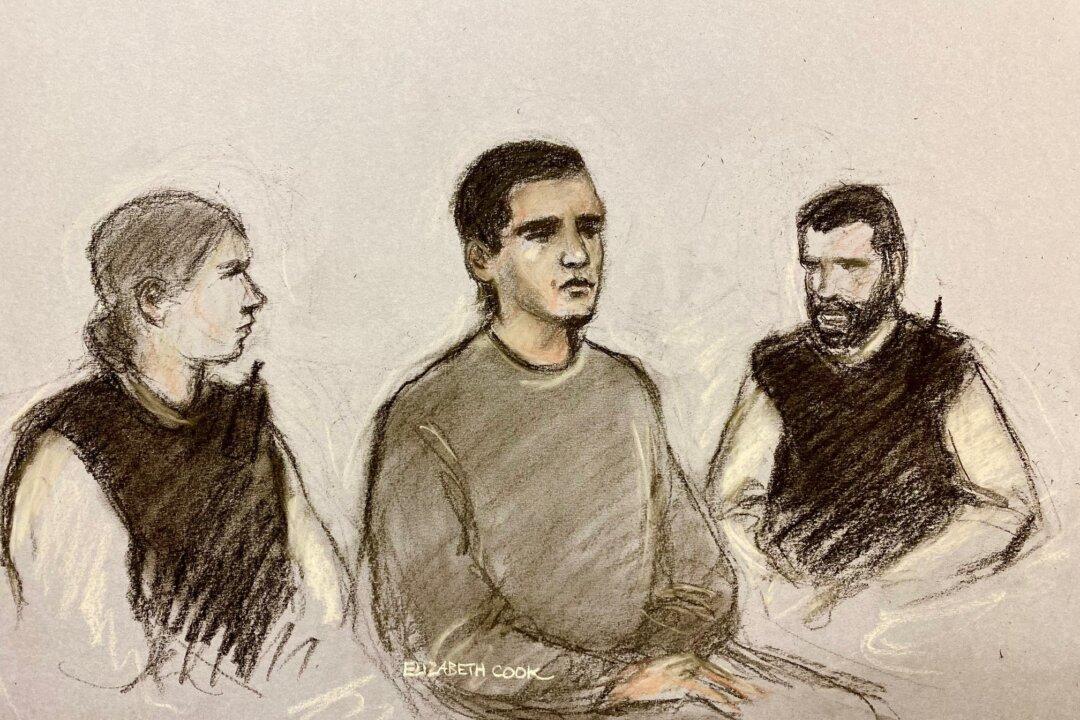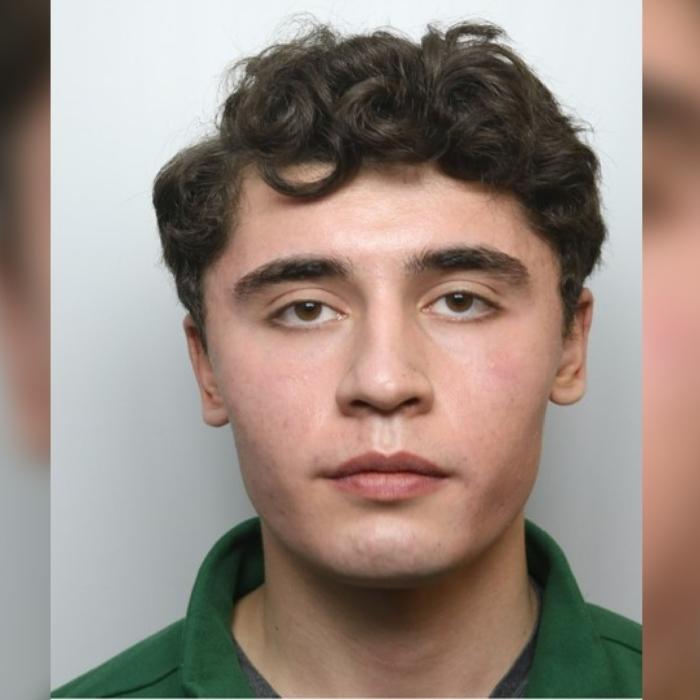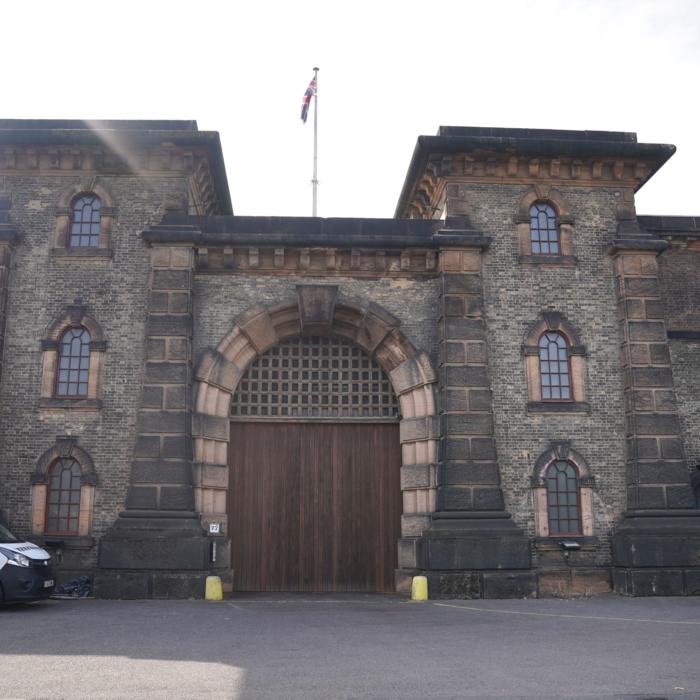A former British soldier accused of spying for Iran covertly gathered the names of service personnel, including those in special forces, a court has heard.
Daniel Khalife, 23, was paid in cash by the Iranian intelligence service for secret information gathered during his time in the Army, according to the prosecution.
It is claimed that at one point, he collected money for spying from a dog mess bag in north London.
He took a photo of a handwritten list of 15 soldiers, including some serving in the Special Air Service (SAS) and Special Boat Service (SBS), Woolwich Crown Court was told on Wednesday.
Khalife took details from an internal spreadsheet of Army promotions in June 2021, sent to a WhatsApp group called Brew Room Boys, and then logged on to an internal HR system for booking leave to try to find out the soldiers’ first names, jurors heard.
Outlining the case for the Crown, Mark Heywood, KC, said: “The details on the spreadsheet included the promotion details for all sorts of units in the Army, including special forces who operated, as you might imagine, on a different basis to other parts of the armed services and ordinarily do not publish their membership or ranks or identity for very good, security-related reasons.”
Heywood added, “He was clearly researching and gathering and recording that information.”
‘Escape’ From Wandsworth
After he was arrested over the allegations, Khalife is accused of escaping from Wandsworth Prison, where he was held on remand, by strapping himself to the underside of a food delivery truck on Sept. 6 2023.Khalife was brought up in Kingston, south-west London, by his Iranian mother and joined the Army in September 2018, two weeks before his 17th birthday.
He completed a 23-week course at the Army Foundation College, at Harrogate in North Yorkshire, jurors heard, before undertaking specialist training with the signalling corpse at Blandford Forum, in Dorset for a year from 2019.
Before moving to Blandford Forum, Khalife underwent and passed security clearance, giving him access to secret information, the court heard.
The prosecution claims he first made contact with Iran in April 2019, when he was still only 17. The jury heard that he travelled to Istanbul in August 2020, “with a view to go onwards” to Iran.
Analysis of messages on devices accessed showed that Khalife said he had “delivered a package to them," the court heard.
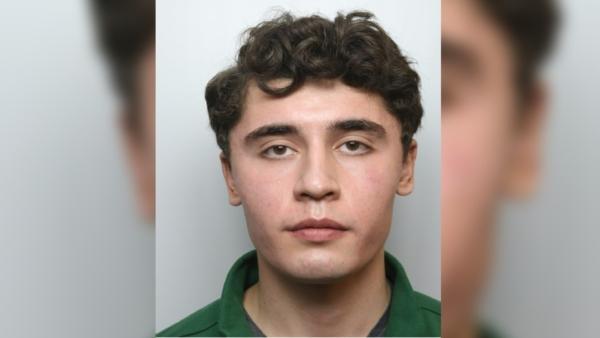
By the end of August 2020, six months after he was posted to the 16th Signal Regiment in Stafford, messages showed he was willing to gather information “to order, for as long as they wanted," the court heard.
On Aug. 28 2020, Khalife spent an hour messaging a contact saved as “David Smith," describing an internal military system which would identify service personnel.
He told the contact, alleged to be his Iranian handler: “I won’t leave the military until you tell me to,” before adding: “25+ years.”
Iranian Handlers
It is alleged he stayed in touch with Iranian handlers during his posting to Fort Hood in Texas, between February and April 2021, where he took a series of screenshots of systems marked “Secret,” including a password record sheet.In April 2021, Khalife was granted the second highest level of NATO security, one below “cosmic top secret,” because of the nature of his work with the Army, providing communications, signalling and cyber-support.
The court heard how in November 2021, Khalife made two anonymous calls to MI5 from an unregistered mobile, having previously tried to contact MI6 through their website, using a false name, and offering his services as a “double agent.”
He told MI5 he had been in contact with Iran for more than two years and thought he could help the British security services, and wanted to return to his normal life.
At the same time, Khalife also saved an electronic note detailing how he intended to start his own intelligence operation to prove himself after he was told he was not eligible for higher-level vetting.
The note read: “I decided to start my own intel operation to prove that I was able to do this.
“All I have ever wanted to do was something in intel.
“The whole reason I joined was to work in intel. I decided to use my connection to IR (Iran) to my advantage.”
But Heywood said that at the same time Khalife was contacting the British intelligence services, he was also searching for flights to Iran and remained in contact with his Iranian handlers.
In December 2021, he messaged them to say he only had time to travel to Beirut rather than Tehran while on annual leave, adding, “I have some big documents to send you from my time in Blandford.”
Earlier in the week, the jury heard that Khlaife told police he had made contact with the Islamic Revolutionary Guard Corps, but later said he had intended to sell himself to the UK security agencies.
After completing his specialist training in Dorset in early 2019, he was posted to the 16th Signal Regiment in Stafford. Shortly afterwards, In April 2019, he created a contact with the +98 dialling code for Iran from the UK, the court heard.
When interviewed by police in January 2022, the soldier said he made contact with a well-known individual connected to the Islamic Revolutionary Guard Corps, jurors heard.
“His aim in doing so was clearly to offer himself as an asset to Iran’s external security apparatus,” Heywood said.
“The prosecution case is that he began a process of obtaining, recording and communicating material, information of a kind that might be or was intended to be useful to an enemy of the UK.”
Kahlife also told the police that in due course he had been transferred to an English-speaking handler.
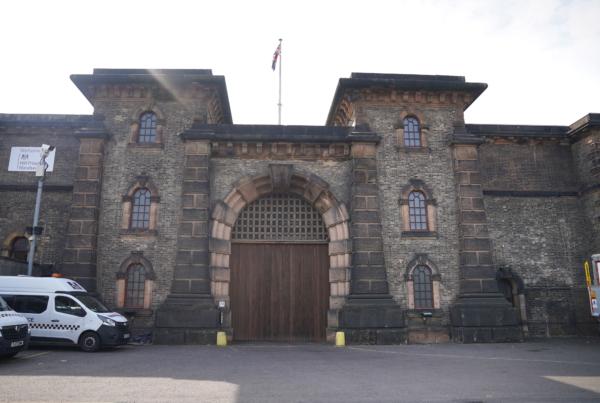
‘An Elaborate Double Bluff’
But the soldier later claimed the affair had been an elaborate double-bluff, the jury heard.“Mr. Khalife said that he actively pursued that relationship, although what he came to say to the police was that all the while he was trying to engage in a double bluff, in reality, he said he was involved in an attempt to be able to sell himself to the UK security agencies,” Heywood said.
“It will be for you to say whether his motives were simply mixed or whether he was playing a cynical kind of game,” the prosecutor told jurors.
His email said he had been asked to provide the Iranian government with information, and had sent them a fake document for which they paid him 2,000 US dollars (£1,500) left in a “dog waste bag” in Mill Hill Park in London, the trial was told.
Khalife was arrested at MoD Stafford on Jan. 6 2022, a search warrant was carried out and items found included a black notebook with writing in it including the words “stocks,” “property” and “spy,” the court heard.
After police initially arrested him and he had been released on bail, Khalife absconded from his barracks, leaving canisters and wires on his desk intended to look like an explosive device, jurors were told.
As well as the alleged prison escape, he denies a charge of gathering, publishing or communicating information that might be useful to an enemy, namely Iranian intelligence, contrary to the Official Secrets Act between May 1 2019 and January 6 2022.
Khalife also denies having elicited or attempted to elicit personal information about armed forces personnel that was likely to be useful to a person committing or preparing an act of terrorism from a Ministry of Defence administration system on August 2 2021.
Khalife denies all of the charges against him.
The trial, before Mrs. Justice Cheema-Grubb, is expected to last about six weeks.
